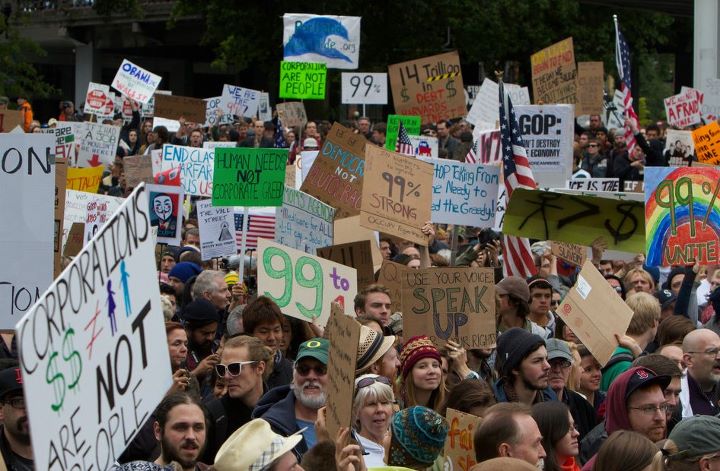This is the third blog in my ‘World War X’ series. It asks, what does ‘world war’ look like from the viewpoint of most of the people of the world?
Let’s distinguish between two generic kinds of war. After the German legal philosopher Carl Schmitt, let’s identify the first kind as a ‘Schmittian’ war—a contest between two states over who gets to dictate its will on the other, or a civil war over who gets to control the state. A ‘Schmittian’ world war is a geostrategic fight over which great power gets to dominate the world. Today’s obvious flashpoints are Ukraine and Taiwan, with Israel vs. Iran also a contender.
World War Two was Schmittian, but it was superimposed on all kinds of other wars, some of which started earlier, many of which carried on longer.
To take just one example, Indonesia’s war in 1941-45 was complicated political-military alignments. Japan invaded and drove out the Dutch colonists, and fought the US, Britain and Australia. Indonesian nationalists allied with Japan against the Dutch, on the promise of independence—which they declared as soon as Japan surrendered to America. But the Allies wanted to bring back the Dutch, and, because they lacked the troops to reimpose colonial authority, coopted the Japanese army to help their fight against the nationalists. Some Japanese troops who had refused to surrender joined the nationalists. War continued another four years. At more local levels across the archipelago, different groups emerged, disappeared, fragmented or merged, shifting their alliances, and the ultimate fate of islands including Papua remained undecided.
So, for Indonesians, there wasn’t a clear distinction between World War Two (up to August 1945) and the ‘Post-War’ order (after August 1945). Across Asia, and in parts of Europe, there were variations on this experience.
The second generic type of war let’s call ‘Hobbesian’ because it has many different warring parties, in shifting alliances. This doesn’t need to be anarchy: it’s a mixed set. Mary Kaldor describes ‘new wars’—a mixture of politics and crime, where warring parties collude in sustaining conflict. I make the case that a violent political marketplace—where politics is business and business is politics—can be a form of peripheral government, which for the people who experience it is no different to war.
Schmittian wars have a Hobbesian element and vice versa. An example is many wars of liberation. In the 20th century, most revolutionary ‘people’s wars’ were also wars among different groups in colonized societies. This was partly by design: colonial powers used divide-and-rule to devastating effect. Colonial counter-insurgency doctrines were a kind of anti-politics, their aim being to deprive the targeted communities of political agency, and peel off people prepared to collaborate with the oppressor. Corruption was part of their modus operandi. Colonial war handbooks were then updated for America’s wars in Vietnam and its clients’ counterinsurgencies in Central America, and revised again for the post-9/11 wars in Afghanistan and Iraq, all the while refined by Israel.
In today’s wars around the world, the single most prevalent logic is the violent political market—from El Salvador, Haiti and Venezuela to Sudan, Somalia and the Democratic Republic of Congo to Syria, Yemen, and Myanmar. It’s sometimes subordinate to other Schmittian logics—but it’s never far from the surface.
The mainstream US and European security commentators don’t see these wars, this constellation of anarchy, ‘new war’ and violent kleptocracy as a geo-strategic worry. In their analysis, a conflict can only qualify as ‘world war’ if the great powers of today get directly involved on different sides. Their attention is on China and Russia, their concerns are what may happen in Ukraine, Taiwan, and Israel vs. Iran.
My perspective is different. I want to bring all the other wars into focus. Those wars may be local but they’re connected to the great power centers and they’re all part of a pattern in the big fight over who runs the world.
All politics is local. But in a financially interconnected world, the moneyed elites are a global village. They know each other; they know their tastes and quirks; they don’t trust each other personally but, for the most part, they trust that they’re all playing the same political game.
The same logic at play in neighborhood politics—a clan feud, a fight over who profits from shakedowns at a checkpoint or where a town boundary line is drawn—is reproduced in a national politics and international rivalries. That’s not new. Intra-dynastic intrigues among Europe’s ruling families led to numerous wars of succession, sometimes with world-shaping consequences.
Today, these conflicts show a fractal pattern, repeating at every level. So a skilled political entrepreneur from small-town Darfur can conduct his political business in the same way at a national level without changing his modus operandum. And he fits in perfectly at with regional powerbrokers: he has the same operating principles as his sponsors in the princely family of Abu Dhabi. And in turn those royal businessmen apply the same rulebook in their international relations. They understand President Donald Trump very well, and he understands them.
The everyday political language of powerbrokers in Africa and the Middle East tells us what we need to know. They talk of ‘political budget’ to refer to how much money a political operator had to spend, no questions asked, on whatever loyalties or services he needs. They speak about the ‘political market’, the going price for hiring a militia, buying a politician’s loyalty, or organizing a media campaign.
El Salvador’s president Nayib Bukele won power by cutting deals with gangs. The Iranian Revolutionary Guards run their proxies like mafia cartels. The Myanmar Junta is also a business conglomerate. The CIA had warlords on its payroll in Afghanistan, and may still do so.
It’s the same logic whether you’re in Nyala or Naypyidaw, Manama or Mar a Lago.
This is how the military-industrial complex in America and Europe does its business with arms buyers, conspicuously so in the Arabian Peninsula. The sellers need the sales to keep their production lines rolling, the buyers need western powers’ protection. It’s not obvious which is most important in the transaction—the weapons, the political buy in, the massive bribes that flow back?
From a distance, conflicts may look like geopolitics, colored by clashing civilizational visions. From close up, it’s commonly geo-kleptocracy, intermixed with gangsterism.
That doesn’t mean that ‘World War Three’, as conventionally understood as a shooting war between world powers, can’t happen. Mafia dons don’t like all-out wars as they’re bad for business, but the US, China and Russia are armed to the teeth and mistakes can occur. Just as World War One was a calamitous error by Europe’s aristocrats, so too today’s world leaders could play with matches and burn the house down.
And they have all sorts of new weaponry, especially for surveillance, targeted killing, and population control, at their disposal.
My contention is that the world power operating system has flipped. It’s money first and everything else second. Geostrategy has been swallowed by geo-kleptocracy. In my next blogs I will outline a theory of power that makes sense of this.



